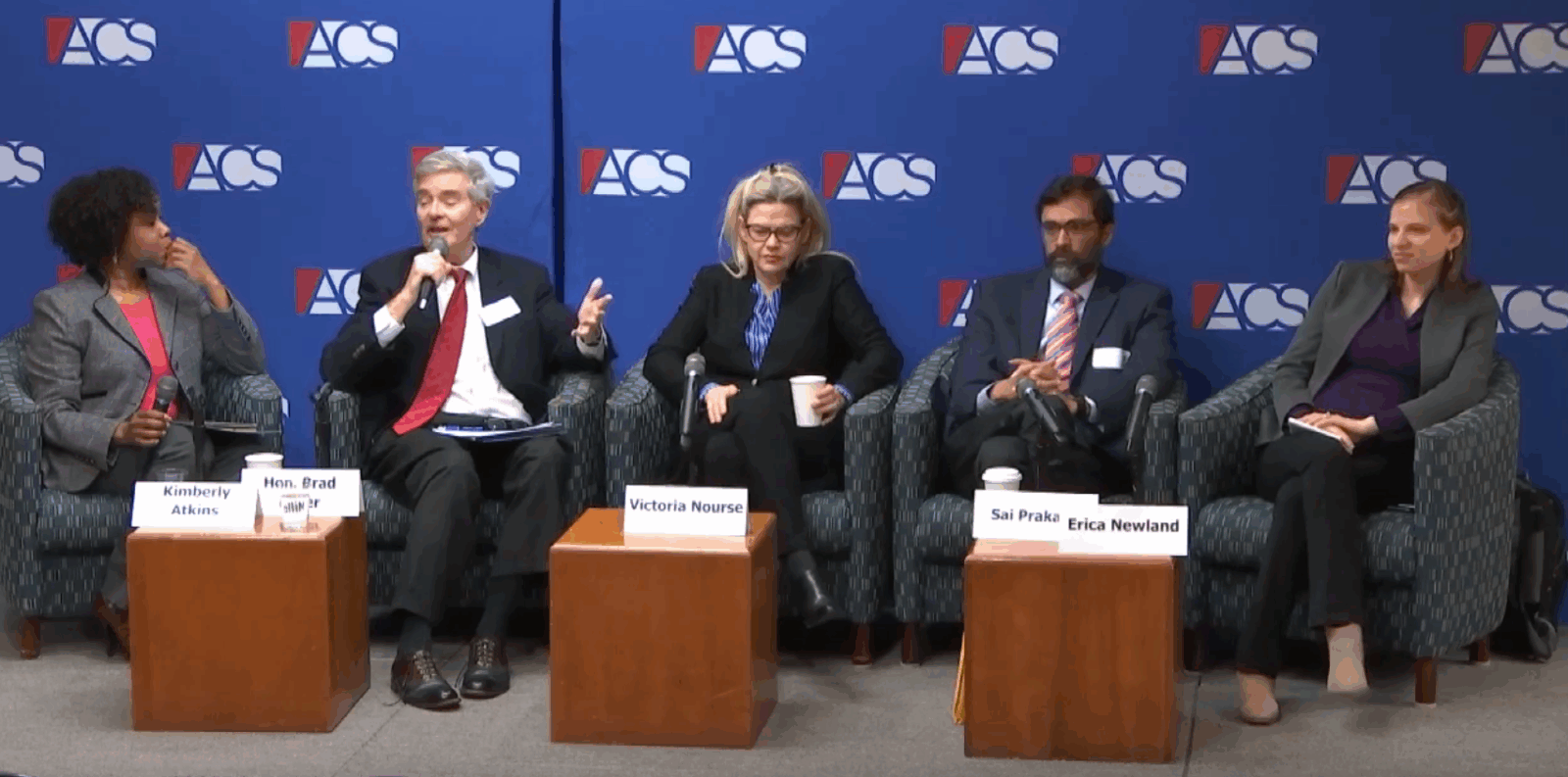February 19, 2020
Unilateralist Presidencies and Submissive Legislatures: An Expert Discussion

2020 is a presidential election year. Candidates in both parties have seized the attention of American voters as we wonder who the next President of the United States will be and what policies he or she will pursue. And while now more than ever those are critically important questions, our unflinching focus on the presidential contest has the potential to mask bigger questions for American democracy: Has the presidency grown so powerful that it has thrown our constitutional balance out of whack, and can Congress reassert its Article I prerogatives?
Those questions were the subject of the American Constitution Society’s day-long symposium on February 6, Unilateralist Presidencies and Submissive Legislatures. With keynote addresses by Congressman Jamie Raskin (MD-8) and former Secretary of Homeland Security Jeh Johnson, the event brought together leading minds in academia, advocacy, and government to try to reestablish equilibrium in our system of “checks and balances,” an equilibrium that Congressman Raskin contended was never supposed to be about “co-equal” branches of government, rather, Congress was supposed to predominate.
The discussion was incredibly timely. The prior evening, the Senate concluded, without calling a single witness, its impeachment trial of President Trump on charges that he obstructed Congress and abused the powers of his office. Although, as our panelists noted, issues of congressional decline have been brewing for decades, the administration’s refusal to cooperate with any investigations they disfavor, including impeachment investigations, put the issue of congressional oversight squarely into the spotlight.
Reflecting on the recently concluded impeachment proceedings, Mieke Eoyang from Third Way challenged us to ask why Congress has surrendered to the executive branch and what incentives are missing to force Members to take a more forceful stand. Mieke suggested that Members surrender to the executive branch both because of sharp partisan divisions and because there is no fear of political blowback. As she explained it, without their constituents serving in the military, they “no longer have skin in the game.” Avoiding hard votes is therefore the best and safest way to assure their reelection.
Secretary Jeh Johnson struck a similar tone during his keynote address when he reminded the audience that “[t]he 2008 Democratic presidential primary turned in very large part on the fact that Hillary Clinton voted to authorize the Iraq War and Barack Obama was on record against it. Collectively, members of Congress no longer want to take a hard vote on whether to go to war if they can avoid it.” Combined with what Hina Shamsi, Director of the National Security Project at the ACLU, described as “courts remov[ing] themselves from the national security conversation” by cowering behind claims of non-justiciability and deference, executive branch lawyers in the Office of Legal Counsel (OLC) have been able to unilaterally “define the rules” of interbranch dispute resolution.
Diagnosing the problem is one thing, offering solutions is another thing entirely. As a starting point, Gene Healy, Vice President of Cato, and Professor Zachary Price suggested vigorous use of the spending and appropriations powers. In addition to controlling the executive branch and limiting what it can and cannot spend money on, Congress could use its appropriations authority to fund itself robustly and “push back” against aggressive executive branch lawyering. Professor Kate Shaw suggested the use of another power – the “personnel power” – to restructure the flow of decision-making in the executive branch and assure that Congress has access to accountable political appointees.
Along with Donald Sherman, Deputy Director of Citizens for Responsibility and Ethics in Washington (CREW), Professor. Shaw also suggested judicial fixes to force the courts to intervene in interbranch disputes, including establishing a “rocket docket” for congressional-executive disputes and congressionally imposed deadlines to expedite judicial resolution.
In the national security context, Mieke Eoyang questioned the constitutionality of the current practice of letting the executive branch decide who in Congress sees classified information, arguing that Members should be able to share intelligence with and seek counsel from staffers without executive branch involvement. Building on that, Hina Shamsi and Professor Marty Lederman pointed out that the executive branch sometimes offers dubious security rationales to justify their conduct. If more people – including lawyers and congressional staffers – had access to classified information, it might be easier to push back against unsubstantiated national security claims.
While these suggestions, and more, led to a robust conversation on how Congress can reassert itself, Professor Lederman cautioned the audience to “be careful what you wish for in terms of hoping that Congress will impose greater restrictions on the Commander in Chief.” Afterall, there are no guarantees that “we would get good legislation from Congress” that would fix, instead of exacerbate, interbranch conflict.
Learn more about the Symposium by watching the video from the discussion here.




